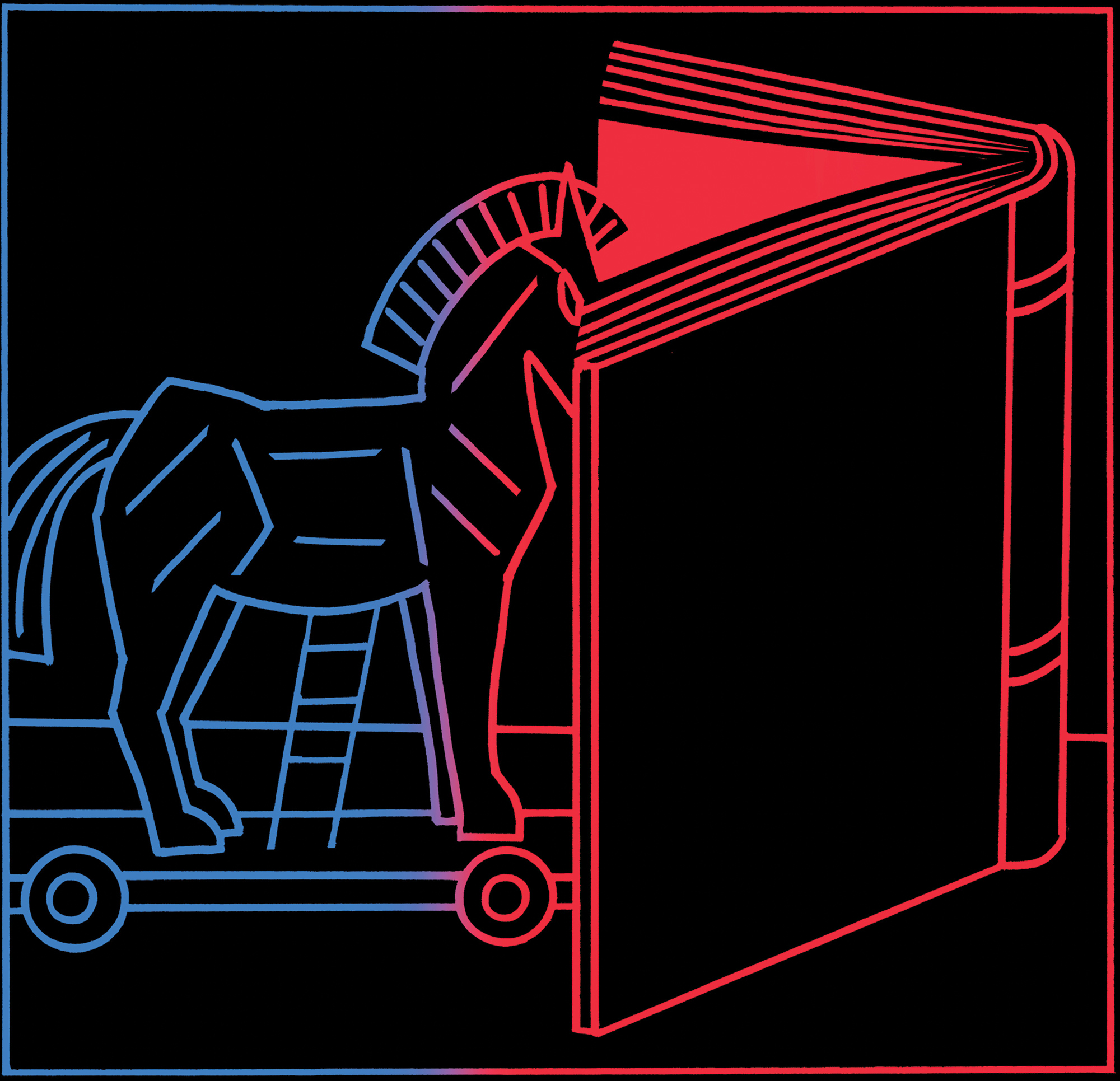
Beware the hollow horse Beware the hollow horse Beware the hollow horse
Why the current wave of censorship reveals the cracks in our democracy
By Tracie D. Hall | Illustration by Anthony Russo | March 2024
“Equo ne credite (Don’t trust the horse),” Virgil warned over 2,000 years ago. He was talking about the gift of a hollow wooden horse that would lead to the toppling of Troy. We must also keep those words of caution in mind as our own country experiences an alarming escalation in efforts to censor books.
These efforts, which have increased steadily since 2017, and prodigiously since 2020, are disguised as moral imperatives such as protecting our children. There are no signs of the efforts slowing despite the fact that most Americans, regardless of political affiliation, believe that book banning is a violation of the right to speak and freedom of the press as protected by the First Amendment.
In the notorious McCarthy era (1950-1954), Sen. Joseph McCarthy amassed the power to ban (and even burn) upward of 30,000 books. The authors were placed on trial and the libraries that housed the works attacked. Now, as then, the censorship crusade is far from a popular movement. Last year, an investigative study by The Washington Post found that the same 11 people were responsible for 60% of the book challenges leveled at schools.
There was a time when the ability to write and read freely was the proof-point of any democracy. Today that right has been obfuscated by some who would have us conflate liberty with control.
The McCarthy era had a singular antihero and never produced a bill. The latest efforts are orchestrated by extremist groups and have become such a potent leveraging tool for politicians that censorship legislation has been introduced in nearly every state. Some of these laws not only criminalize the act of reading, but also recommend jail time and fines for those who make banned or restricted materials available. A new law in Oklahoma, for example, decrees that school and library staff could be fined up to $20,000 or serve up to 10 years in prison for facilitating access to restricted content. A Tennessee law passed in 2023 subjects book publishers, distributors and sellers to the possibility of up to six years in prison and over $100,000 in fines for exposing children to matter deemed “obscene.” But notions of obscenity, age appropriateness or historically or socially reparative works are largely subjective. Over the last two years, I have attended or audited censorship hearings in which the very individuals calling for book bans have openly admitted to not having read the books themselves.
The rise and spread of state-sanctioned censorship legislation is evidence of the contemporary frailty of our democracy and makes this assault on intellectual freedom (and diversity, as books by LGBTQIA and BIPOC authors and about lived experiences are the predominant targets) all the more alarming. Now politicians in other democracies including Australia, Brazil, Canada and the United Kingdom, are replicating U.S.-style censorship tactics. Like their American counterparts, they may see the banning of books as a jumping-off point for restricting other personal liberties.
The distrust of science and data, disinvestment from fact-based journalism and derision of the right to read have formed a powerful and mutually reinforcing trifecta over the past few years. Yet it is the latter, in the form of book banning, that seems to presage a new dark age.
There was a time when the ability to write and read freely was the proof-point of any democracy. Today that right has been obfuscated by some who would have us conflate liberty with control.
The large wooden horse of censorship has cast its shadow over our nation once again. Isn’t it high time that we ask who sent it, what’s inside and why now?